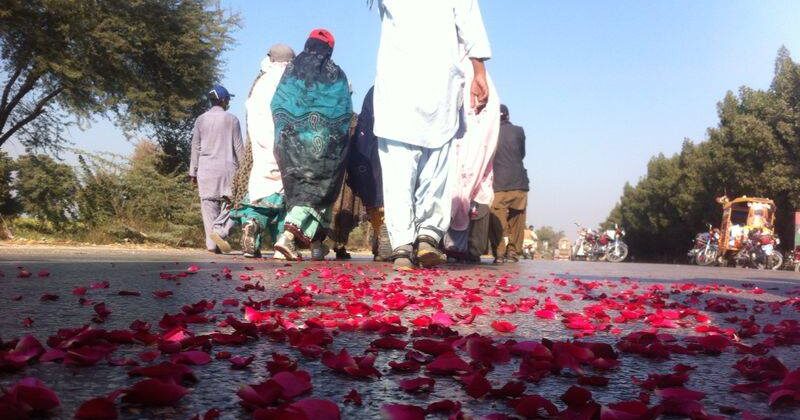

By Shahzad Arshad
The Balochis are a five million strong people living in Balochistan, a large province in south-western Pakistan. Others live in as a diaspora in other provinces as well as the eastern region of neighbouring Iran. They have been subjected to oppression and widespread human rights abuses for many years. Baloch nationalists have waged several insurgencies and since 2020 there has been a resurgence of civil protests, as well as guerrilla actions. The Pakistan state has responded by arrests, ‘disappearances’ and extra judicial killings. The prominent campaigner Mahrang Baloch involving hundreds of women initiated the Baloch Long March. On December 6 they et off to march towards the Pakistan capital Islamabad.
On the night of December 21, when the Baloch Long March arrived in the city , it was brutally attacked by state forces. Large numbers of students, women and the elderly were arrested and mistreated. The government tried to forcibly return the arrested women, who had spearheaded the march, back to Quetta, Balochistan’s capital but they bravely resisted, despite all the violence and threats.
Three hundred students were arrested . The marchers have demonstrated in front of the National Press Club in Islamabad, demanding their release and threatening that if this is not done or if still more are ‘disappeared,’ they will take even more widespread and militant action. Already protests against the state violence spread, turning into ‘wheel jam and shutter-down’ (i.e. business and transport strikes), not just in Balochistan itself but across Pakistan, including in, Karachi, Lahore, Islamabad, and many towns where there are significant Baloch communities.
Rather than breaking the protests, repression has increased the spirit and courage of the people’s struggle. The movement is overcoming its fear of state violence and creating a new political reality that is shaking the existing political order. As a result of this pressure, the court has ordered the release of 167 of those arrested, and the government has started negotiations, hoping by convening of the Jirga (assembly of leaders) this can be used to control the growing political struggle.
This phase of the struggle began with the brutal killing of Balach Baloch, who was under the custody of CTD (Counter Terrorism Department) in Turbat. More generally, the movement is the result of many similar cases that have taken place in recent years, leading to protests organised by Baloch students and women in different cities. Activists formed solidarity committees, again showing that fear of the state’s violence, including severe violence, arrests, forced disappearances and the dumping of mutilated bodies, is being overcome.
An investigation has been launched into those accused of killing Balach Baloch. Thus, apparently, one of the immediate demands of the Long March has been accepted, but the main demand, the complete ending of the state policy of enforced disappearances and the return the disappeared, remains. This is a central demand raised by the Baloch Solidarity Committee led by Mahrang Baloch and other female activists.
The state’s violent response to the Long March sums up its entire policy towards the Baloch nation. The whole state structure of Pakistan is based on internal colonialism, which denies the Baloch nation its elementary democratic rights. But the state made a serious miscalculation in thinking that violence, arrests and restrictions would prevent its development into such a big movement.
The Long March is receiving support on a large scale, including from PTM (Pashtun Tahafuz Movement) and organisations from other nations within the state . The PTM, the Baloch Solidarity Committee and the parties and organisations of the Left have the duty not only to support the Baloch struggle, but to form a united front to take this struggle into the country’s entire working class. Only the working class has the power to spread this struggle and force the state to halt its genocidal actions and concede full democratic rights to the Baloch nation and other oppressed peoples.